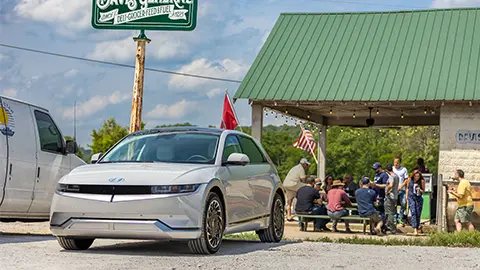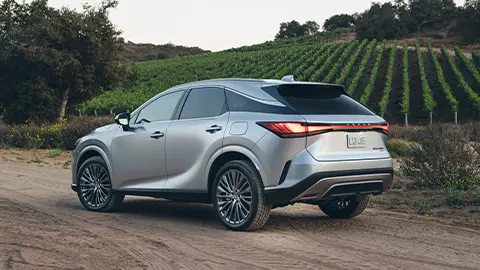What are the Top Ranked Electric Cars?
More and more car buyers are making the switch to electric vehicles. And as EVs become more mainstream, the factors that make them satisfying to own are starting to become more similar to the factors that drive customer satisfaction in conventional vehicles. That’s according to consumer insights company J.D. Power, which has just released its annual electric vehicle experience (EVX) ownership study. In 2024, the top-ranked vehicles in both the mainstream and premium categories are from familiar brands – Mini and BMW.

Best Mass-Market EV: Mini Cooper Electric
J.D. Power’s annual rankings focus on the crucial first year of ownership of a new vehicle, and measures owner satisfaction in the following areas:
- Accuracy of stated battery range
- Availability of public charging stations
- Battery range
- Cost of ownership
- Driving enjoyment
- Ease of charging at home
- Interior and exterior styling
- Safety and technology features
- Service experience
- Vehicle quality and reliability
Interestingly, the top-ranked vehicle in the mass-market category has one of the shortest ranges of any EV: the Mini Cooper Electric. But while its actual range on a full charge may be poor, owners loved its driving experience, its low running costs, and its overall ease of ownership. The electric Mini scored a total of 770 points out of a possible 1,000.
Hot on the Mini’s heels were the Ford Mustang Mach-E, which scored 764 out of 1,000 points, and the Hyundai Ioniq 6, which ranked third for mass-market brands.

BMW i4 is Most Satisfying Premium EV
Among premium-priced brands, the BMW i4 had the highest overall satisfaction, scoring 800 points. It was followed by the Rivian R1T with 789 points, and the Rivian R1S at 778 points. The segment average was 750 points, higher overall than the segment average for mass-market vehicles, which was 718 points.
However, digging into the findings, it’s interesting to note that quality and reliability for premium electric cars was lower than mass-market ones. Owners of mass-market EVs experienced fewer problems than owners of high-end EVs, with 11 of the 14 mass-market models ranking higher than the premium brand average for quality and reliability. Premium EVs tend to have more complex tech features that frustrate drivers – and can go wrong more frequently.
Quality and reliability, in fact, are why the Mini Cooper Electric and BMW i4 scored do well in the study. Both models ranked highest in their categories for quality and reliability, scoring more than 60 points higher than their runners-up.
Public Charging Satisfaction Declines
It’s not all roses for electric vehicle owners, however. While they reported good satisfaction with charging at home, satisfaction with public charging declined for the second year in a row. In fact, J.D. Power says that public charger availability is the least satisfying aspect of owning an EV – and has gotten noticeably worse with time.
"Many products are hitting the mark and resonating with shoppers but, at the same time, the decline in satisfaction with public charging availability should serve as a warning,” said Brent Gruber, executive director of the EV practice at J.D. Power. “Concern about access to public charging is a key reason many buyers currently reject BEVs. For EVs to reach their full potential, this issue needs to be resolved."
Among mass-market EV owners, satisfaction with public charger availability is a massive 32 points lower than it was just a year ago. Given the explosive growth of EV sales, and lagging growth in charging infrastructure, this isn’t a surprise, as many American EV owners want fast and convenient charging on road trips.
2024 should see this situation improve as many manufacturers have announced plans to provide their owners with access to Tesla’s highly-ranked Supercharger network, initially with a plug adapter, and ultimately by adopting the North American Charging Standard (NACS) charge port on their vehicles. The first of 30,000 charging stations from Ionna, a consortium of seven automakers, is also set to open, with rapid expansion planned over the next couple of years.
The Electric Car Education Gap
The 2024 survey also showed that first-time electric car owners were generally less satisfied than those on their second or third EV. The average gap between the two groups was 28 points, and satisfaction among first-time EV owners dropped 16 points from 2023, driven primarily by dissatisfaction with battery range and public charging availability.
Still, the majority of electric vehicle owners told J.D. Power they would consider another electric vehicle. Only 38 percent of EV owners say they would be willing to consider a plug-in hybrid for their next vehicle, and only 19 percent would consider a hybrid or gasoline option. First-time owners were slightly more likely to consider a plug-in hybrid, hybrid, or internal combustion vehicle next.
Plug-In Hybrids Have Lowest Satisfaction
J.D. Power notes that news reports that suggest plug-in hybrids as a good alternative to battery-electric vehicle issues like range and public charging availability may be off base. Owners of plug-in hybrid vehicles are, on the whole, much less satisfied with their vehicles than owners of EVs.
Indeed, overall satisfaction for plug-in hybrid vehicles averaged 629 out of 1,000 points – far lower than 718 for mass-market EVs and 750 for premium EVs.
“Plug-in hybrids may not be the simple solution to solving early issues with full battery electric vehicles,” Gruber said. “Expected lower running costs is a top purchase reason for EVs but satisfaction with the cost of ownership is much lower for plug-in hybrids. Plug-in hybrids retain the costs of maintaining a traditional powertrain yet without the benefit of the extended electric driving range found in full battery electric vehicles.”
J.D. Power Electric Vehicle Experience Study
The electric vehicle experience (EVX) ownership study was conducted in collaboration with PlugShare, a well-known EV app to help drivers find charging on the go. Respondents for the 2024 survey included 4,650 owners of 2023 and 2024 model-year battery-electric vehicles and plug-in hybrids. The study was fielded from August through December 2023.














